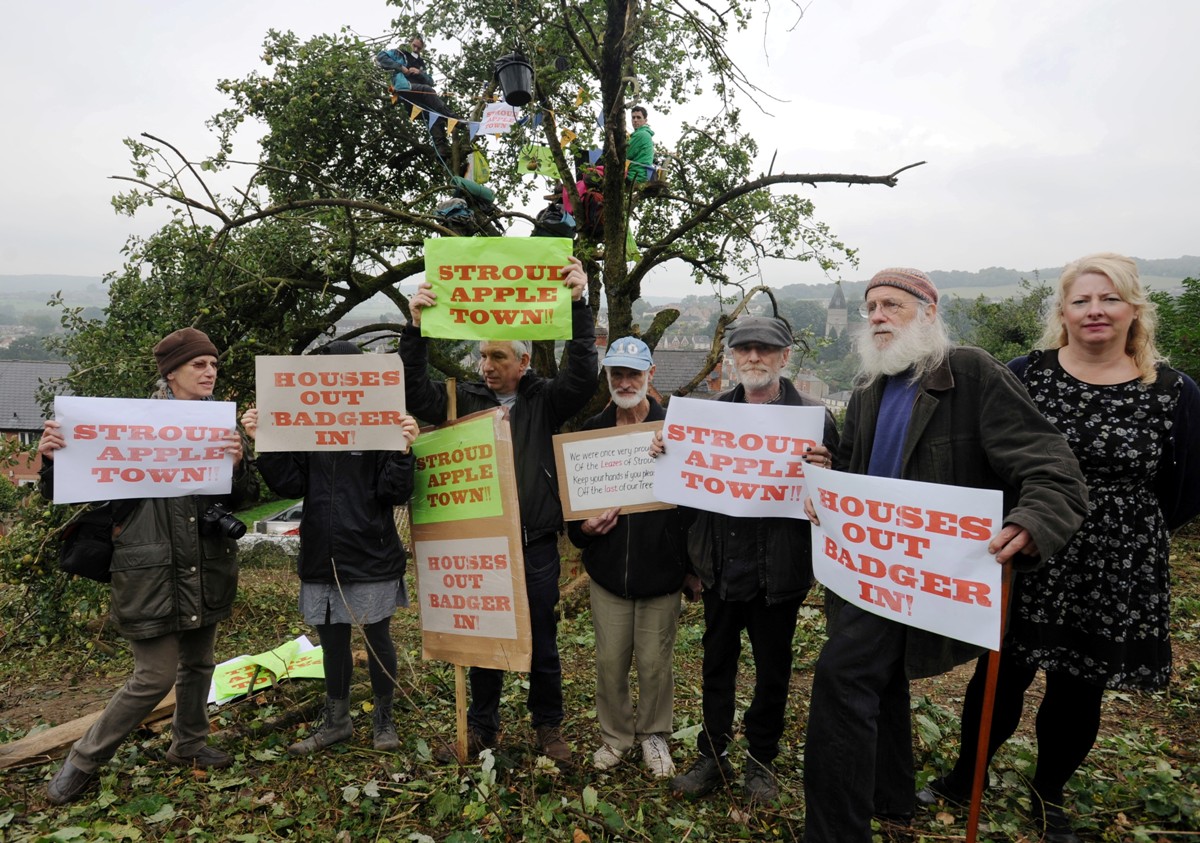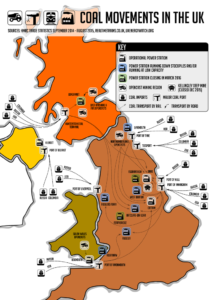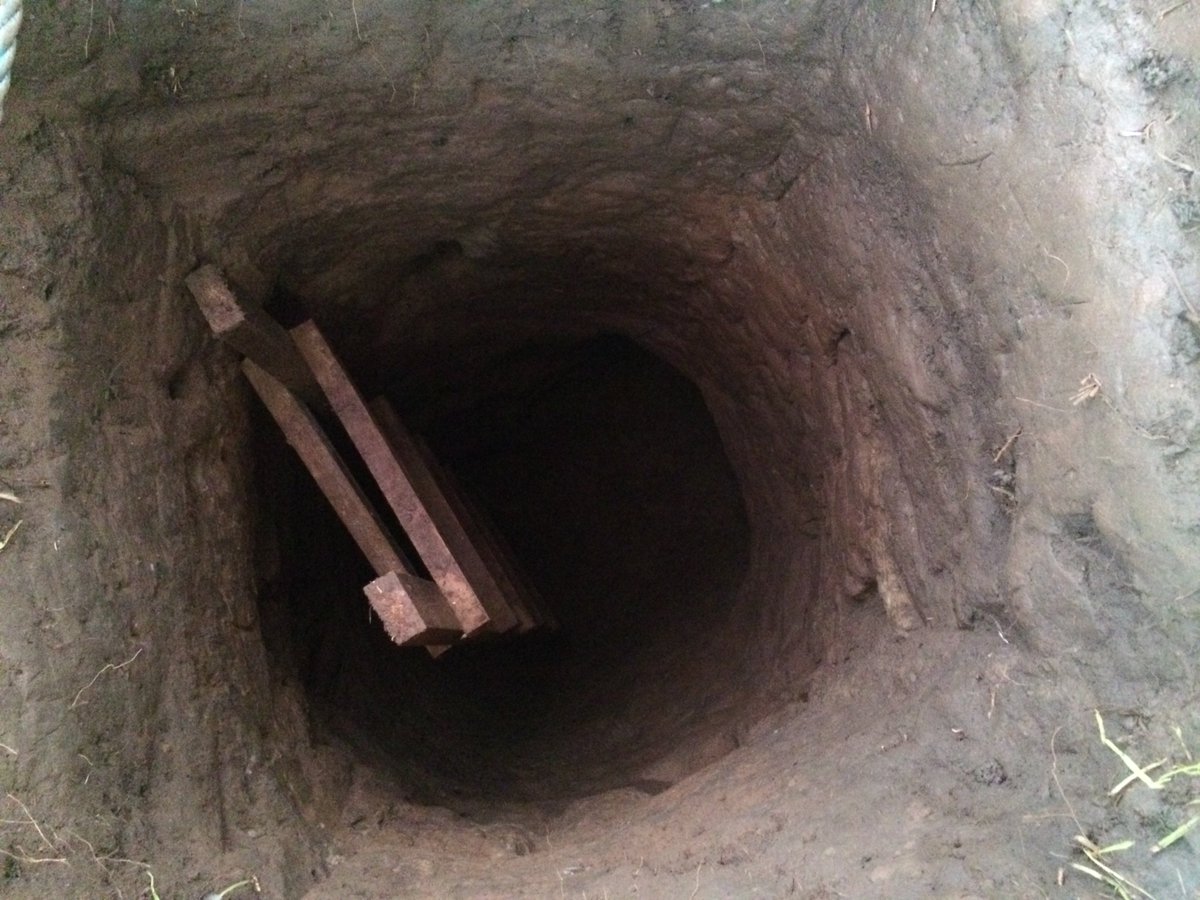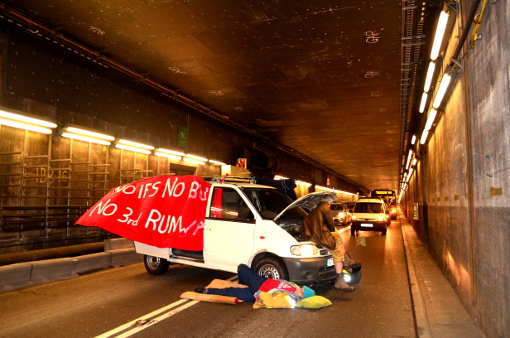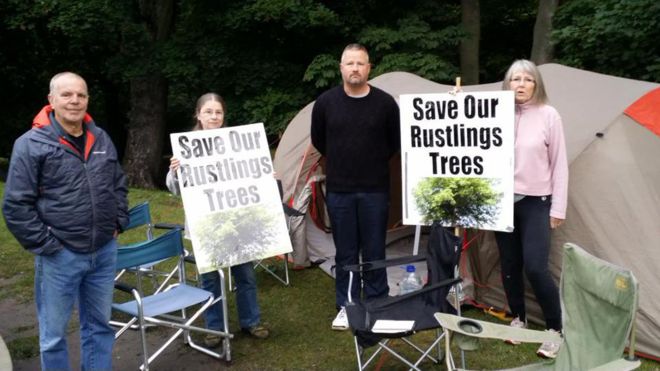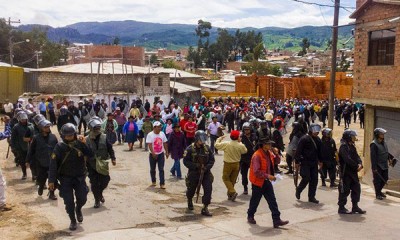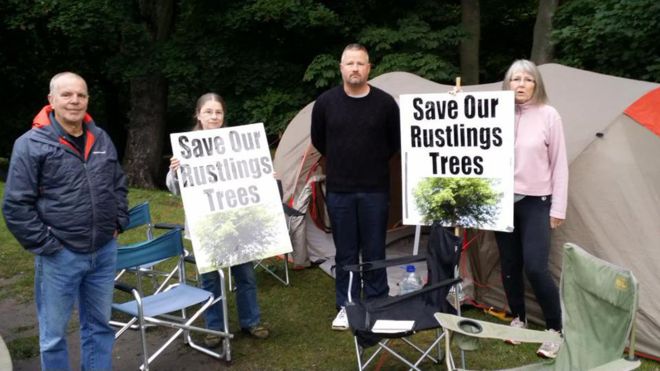
5.11.15 Latest:
An independent panel aiming to resolve disagreements involving the felling of trees in Sheffield has been set up.
It follows thousands of people supporting a campaign to stop 12 trees being chopped down on Rustlings Road.
Community group Save Sheffield Trees said it would wait to see the “terms of reference” of the new panel.
A council spokesman said a survey will be sent to residents when upgrading works which affect trees.
If over half of respondents object, it will then be referred to the Independent Tree Panel.
After considering the evidence, the panel will then provide advice to the council about the proposals.
15 September 2015: Campaigners took their fight against controversial tree felling to the door of Sheffield Council contractor Amey, which is carrying out the work.
A demonstration was held at the firm’s Olive Grove Road depot in Heeley yesterday morning.
Campaigners across the city continue to call for a pause on felling while a formal tree strategy is developed.
David Dilner, from Sheffield Tree Action Group, said: “Since the last tree forum our membership has grown from 200 to 800 – that demonstrates the level of frustration and it is growing apace.
16 September 2015: Campaigners fighting felling in Sheffield have set up a camp near to 11 trees which have become the ‘symbol’ of the city-wide controversy.
Members of the Sheffield Tree Action Group (STAG) pitched their tents in Endcliffe Park on Rustlings Road to protect trees which are due to be felled as part of Sheffield City Council’s £2bn road improvement scheme.
The original drive to save those 11 trees led to a 13,000-strong petition, which triggered a debate in Sheffield Town Hall and was the spark behind calls for a formal city-wide tree strategy to be developed by Sheffield Council.
Save Our Roadside Trees (SORT) campaigner Calvin Payne, who was sleeping over in the tent last night, said all supplies had been donated and passers-by were supportive.
He added: “This road is symbolic, although the campaign is city wide, and we do want a win here to inspire people across the city.”
Aims of the camp were to enable campaigners to take peaceful action quickly if felling did begin and also to raise more awareness as protests spread across the city.
Protests have been held over the last few months in other parts of the city to try and prevent trees being felled.
In June/July, STAG gathered more that 10,000 signatures on a petition calling for the council to stall the plans until independent experts assessed the trees.
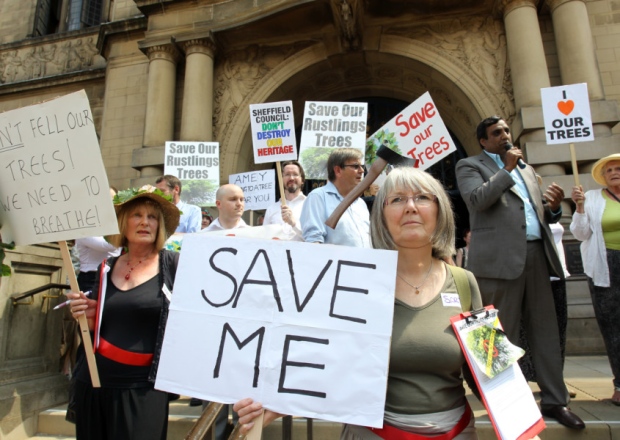
Background: With an estimated two million trees – four for every person – Sheffield holds a strong claim to be Europe’s greenest city. But the South Yorkshire city’s tree-lined streets have become a battleground in an angry row that has pitted residents against council highways officials.
Contractors are assessing 36,000 roadside trees on behalf of Sheffield City Council to decide which need to be felled as part of a £2bn road improvement scheme.
About 2,000 have already been cut down since the Streets Ahead scheme was launched in 2012, although the council says it has replaced them all with younger trees and has planted 50,000 extra trees in 17 new woodlands.
But residents have launched their own grassroots campaigns to defend the roadside trees, some of which are 100 years old, and the dispute is becoming increasingly heated. A protest camp has been set up in a city park and other residents have been rushing out of their homes to disrupt workmen arriving in their streets.
“Residents across the city want to save these trees,” said ecologist and environmental campaigner David Garlovsky, a spokesman for the Sheffield Trees Action Group. “Eight or nine groups have sprung up in different areas. These trees are there for our wellbeing and cutting them down will increase pollution. The council haven’t looked after these trees in the past and they now have a problem on their hands, but there seems to be a blitz on now to cut down as many as possible, as quickly as possible.”
Only last week it was reported that the council was refusing to answer Freedom of Information requests from residents about the trees because the requests were considered “vexatious”.
Sheffield City Council apologised last week after Steve Robinson, the head of highways, was secretly recorded allegedly saying “we’re not interested” in residents’ “nonsense” reasons for saving individual trees.
Residents have spent a month under canvas at a protest camp in the city’s Endcliffe Park to protect 11 lime trees on neighbouring Rustlings Road, which they say are under threat. A petition has attracted 10,000 signatures.
Louise Wilcockson, who lives close to the park, said: “I walk past those trees around five or six times a day. We have to save them – not just for the people on this street but for the entire city.”
Residents in Western Road, Crookes, have also rallied around a London plane tree – one of several planted in memory of war heroes. They say an independent survey has found that the tree is in “reasonable health”, in contrast with a contractor’s report saying it is a “safety risk”.
Sheffield City Council says the aim of the Streets Ahead project is to upgrade the city’s roads, pavements and street lighting as part of a Private Finance Initiative project. Officials say Sheffield is the greenest city in the UK and is in a “unique position” to carry out this “vital work”.
It also says an independent survey identified that three-quarters of Sheffield’s street trees were dead, dangerous or dying, and needed replacing. The contractor, Amey, is working to replace trees that fit criteria known as the “six Ds”, which also include those found to be diseased, damaging or discriminating – obstructing safe passage for prams and wheelchairs.
The main reason that is being given for felling these trees on the individual survey reports is that they are damaging the pavement, not that they are diseased or dying and that it is easier to remove the tree than find any other way of making the pavement flat. Most of these trees are around 100 years old and are species such as Limes and London Panes, and so have a life expectancy of 300-400 years. These trees are teenagers, and will last for many more generations if Sheffield City Council lets them.
I think someone has confused a 2006-2007 survey that said 75% of the trees are over-mature (which does not really mean anything – 100 year old trees, with a 400 year life expectancy fall in to this category – it is a forestry term relating to the value of the timber), and the later survey in 2012 categorized trees according to other criteria (the 6 Ds), including that trees were damaging pavements. I suspect this misunderstanding is the council’s of the survey the commissioned, rather than the journalist, as we have seen it elsewhere. They appear to be felling most of the city’s street trees based on misunderstanding a report…
Sheffield Tree Action Group
Another similar fight in Sheffield -Take Action for Smithy Woods
If you are concerned about the loss of ancient woodland, local green spaces, local wildlife and wildlife sites or worried about inappropriate development in the green belt and erosion of ecological networks then please object to this application. Help us to Save Smithy Wood!
For background information about Smithy Wood and this case click here.
An outline planning application has been submitted by ‘Extra MSA’ group that proposes to build a new motorway service area on Smithy Wood Ancient Woodland and Local Wildlife Site close to Junction 35 of the M1 in the Ecclesfield/Chapeltown area of Sheffield. The development includes a large fast food court, 80-bed hotel, petrol station and car park.
There is now a FINAL opportunity to comment on this application following the submission of further material by the developer. The more objections that are received by the City Council, the more likely the application is to be refused. It does not matter if you have objected previously – you can always refer to your previous submission or re-iterate your points.
You have until the Friday 13th November to submit your objection to Sheffield City Council Planning Dept. This is how to respond to the planning application.

